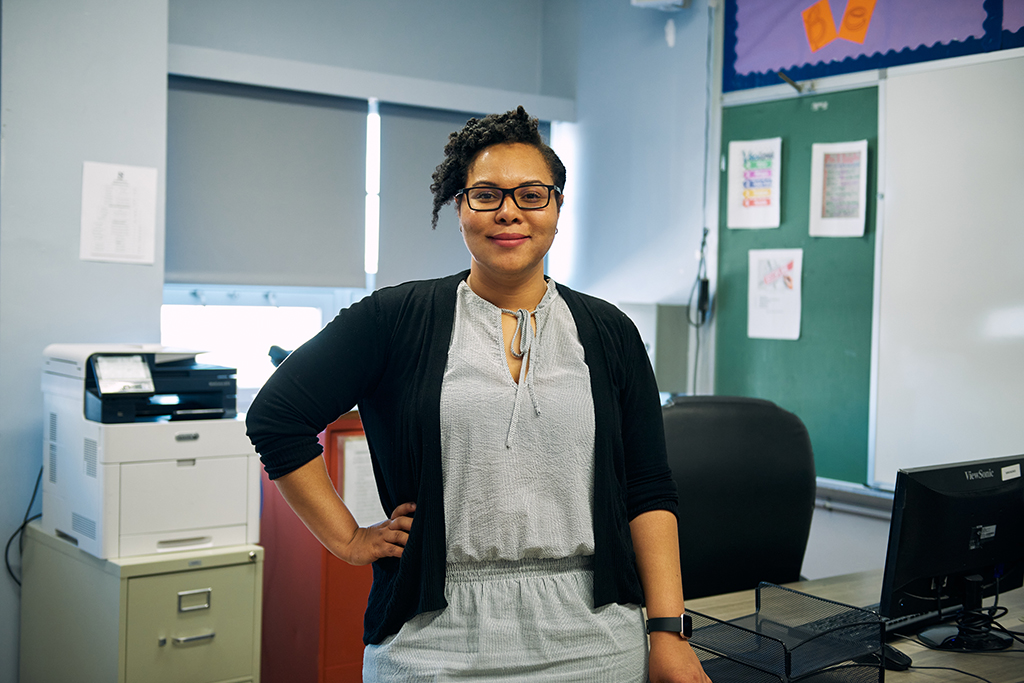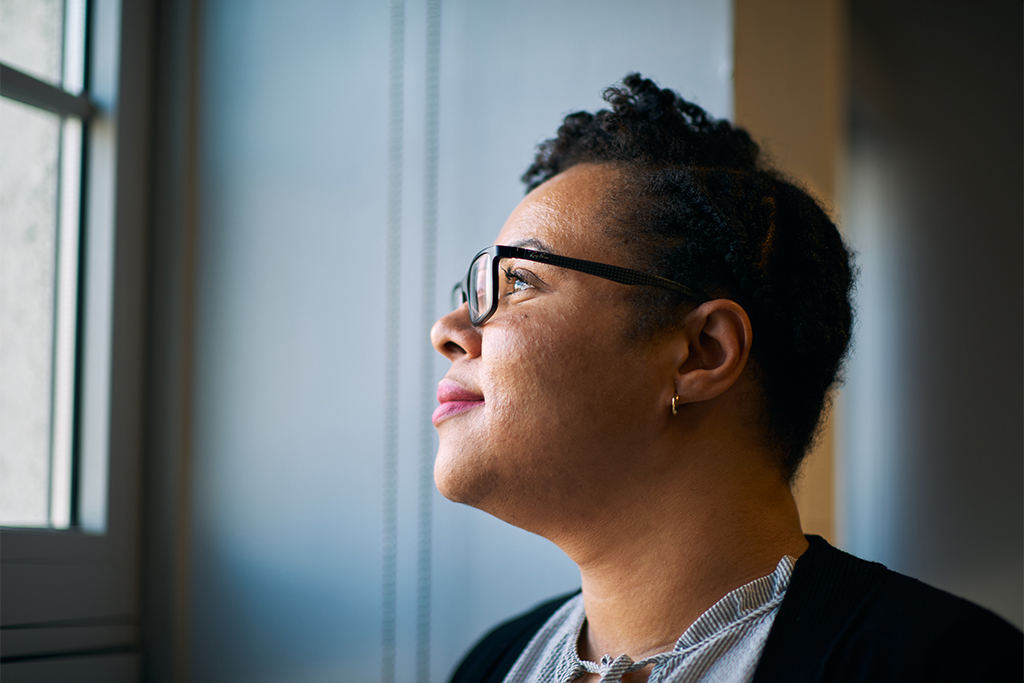More Than A Straight-A Student
Drawing from her own experiences as a perfectionist, Cassandra Smith seeks to provide quality instruction to students with special needs—as well as the assurance that they are more than their academic performance.

Cassandra Smith (PPE ’09) slumped down in the back row of a Tubbs class. Propping her chin up in her hands, she stretched back the skin at her temples to keep her drooping eyes open. She turned her chin down in resolution, trying to not miss anything. One too many all-nighters had done their damage. She had spent the night before—and early morning hours—clacking away at her computer and scrupulously editing a paper for another class. The last grade she had received in that class left an unsavory taste in her mouth, and she was anxious to redeem herself.
Prior to coming to King’s in 2005, Smith worked restlessly to maintain a spotless academic record. She felt so determined to earn a high grade on her world history AP exam in high school that instead of eating, she nervously spent the lunch break reviewing her notes. When she got to King’s, her desire for perfection pushed her to burnout. Realizing that she was placing unrealistic expectations on herself, Smith slowly started to reform her habits. Today, Smith serves as Director of Special Education at NorthSide Charter High School and works to show her students that they are worth more than their academic achievements.
Growing up, Smith turned to academic performance as a way to ease the difficulty of fitting in with her American classmates. Born in Brooklyn, she was raised by her grandparents in Montreal, Canada until she was six, at which point she returned to live with her mother in St. Albans, Queens.
Despite golden childhood memories of “playing jump rope, bingo, and roller-skating” in St. Albans, Smith admits that the transition into American life did not always feel natural: “When I came home from school, everything surrounded Haitian Creole, Haitian politics, food, and music. I was always ignorant of the American cultural references.” But being a model student was something Smith was good at, and it provided a way to feel in control of her environment.
By high school, Smith had a reputation as an ‘A’ student. “Every day I studied for hours and I would get euphoric with every ‘A’ I earned,” she recalls. “I tried to find myself by being a model student who didn’t trouble her teachers. Even when I had legitimate questions I didn’t bother to ask for fear of embarrassment.” This fear of being a burden and damaging her pristine reputation caused Smith to work herself to the brink of exhaustion. Her hands often cramped from taking meticulous notes and her back ached from lugging her textbooks everywhere. In her head, the regular stress and intensity were small prices to pay for what they promised: a sense of identity.
The comfort of this identity began to dissolve at King’s, where Smith started to experience a fierce sense of inadequacy when comparing herself to peers. Eventually the pressure overwhelmed her and caused an anxiety mudslide involving “crying to sleep, not sleeping, overeating, and trying desperately to prove worth through grades.” A typical day for her involved commuting from Long Island to school and spending every spare pocket of time between classes studying. Despite great effort, she lost her A-streak, making her feel lost and desperate. And her body was starting to reach its all-nighter limit. “I would spend nights studying for a class then totally blank out when professors would ask me questions during class discussion.”
Her time at King’s was not all a burden, however. Smith recalls with gratitude how professors like Dr. Tubbs challenged her to speak more in class discussions. She began reading C.S. Lewis, who is still one of her favorite authors, and, for the first time, she began exploring how her Christian faith impacted politics, economics, and social policy.
In the midst of this, Smith decided she wanted to change her career route. Initially, she considered a degree in law because in her head it “meant making a lot of money and winning.” But by her junior year at King’s, she realized she actually wanted to work with children. In the five years following graduation, Smith worked in daycares, seeking out opportunities to care for special needs children. As her love for special education became a passion, she returned to school in 2011 to receive her Masters in Education at Molloy College in Rockville Centre, Long Island.
Even though Smith had started becoming aware of her perfectionism while at King’s, the allure of it remained. While receiving her master’s, Smith juggled work at ACDS Daycare in the morning, classes in the evening, and service at church on the weekend. While the babies in her class napped, she dug into books about differentiation and specially designed instruction. She eventually quit her full time job when she began to do student teaching. During that time, she lived at fever pitch, barely making rent by doing deliveries, cleaning bathrooms, and serving at weddings.
As she neared the end of her master’s program, Smith’s initial vision to provide superior education to special needs children had grown faint. She began to question her motives for returning to school: “Was I moving toward the kingdom of God or pursuing my own vanity? Was it my perfectionism that I was worshipping?” One weekend, Smith attended a retreat with members of her church, Resurrection Church. In the car ride home, Smith felt an intense sense of God’s love for her. She finally let herself cry. “At that moment, I truly believed that I was lovable in a way I had not before.”
The retreat marked a turning point for her. “I recognized that I needed to say ‘no’ more but I feared missing out and disappointing people,” she said. “I did not have clear boundaries which led to tremendous burnout.” After the retreat, Smith slowly began putting limits on herself, finally feeling the freedom of grounding her trust in God—not her performance.
Smith allowed her friends and family to offer the financial support she had previously declined. She started to orient her life around “prayer and worship, prayer and worship, worshiping while praying.” Remaining vigilant in these new habits began to transform her value system.
Smith says that King’s “stirred up my appetite for more knowledge and curiosity.” Now, secure in her identity as a child of God, she brings this intellectual curiosity into her work, where she strives to create an environment where students receive a unique, kinetic education. Most of all, she works to instill in her students the conviction that “they are more than their titles, roles, and tasks.”





